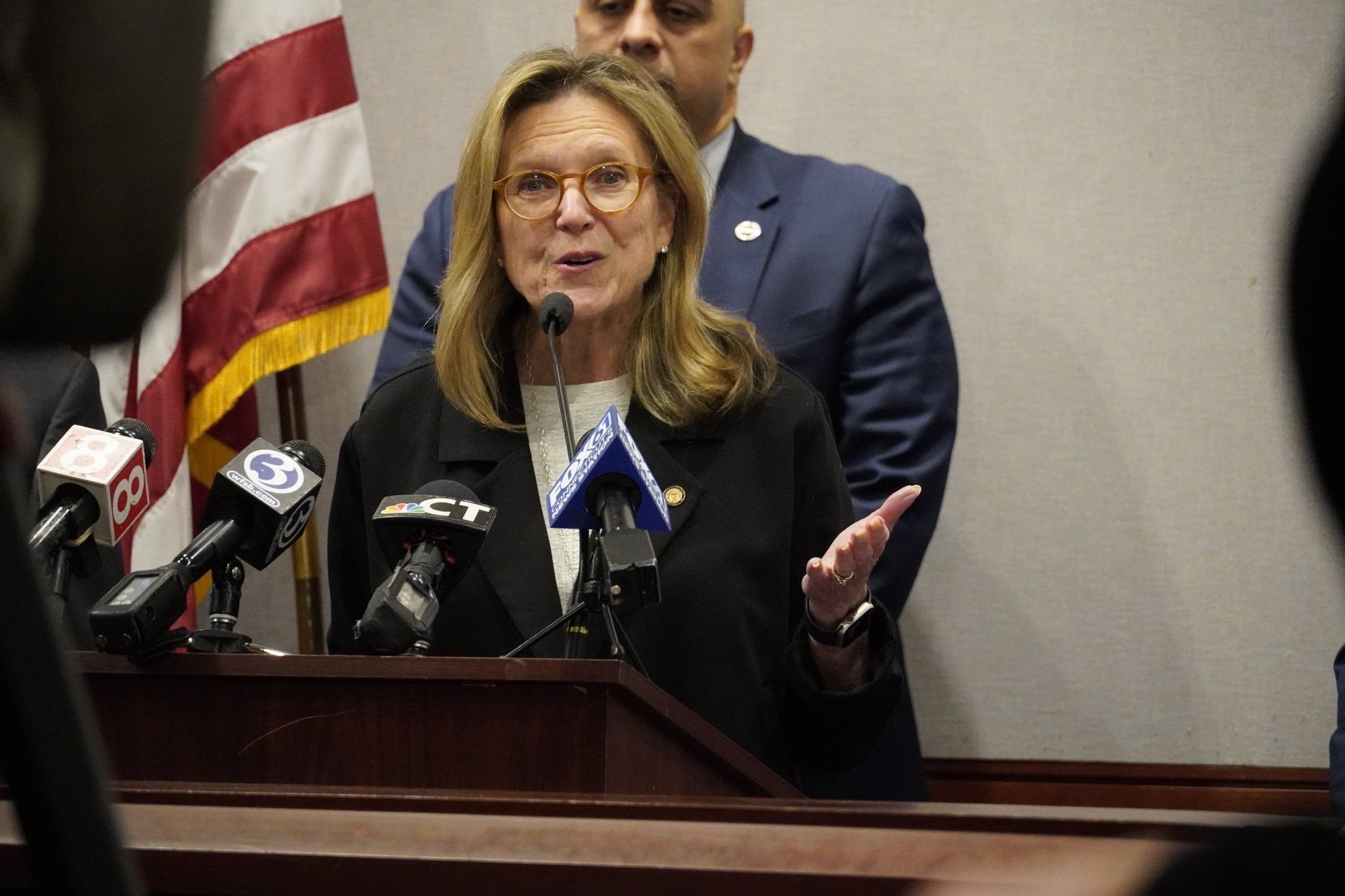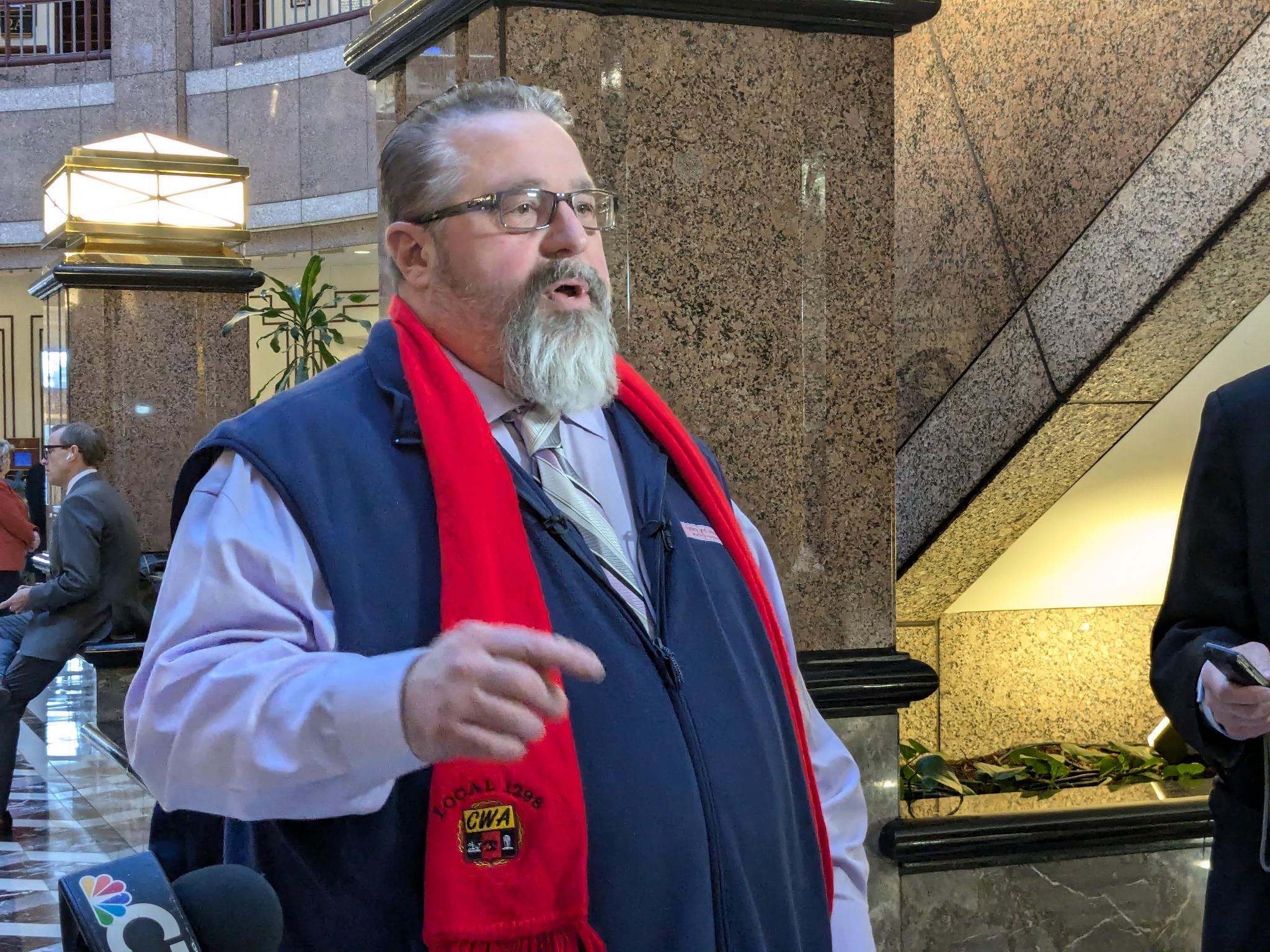New Bill Seeks to Protect Warehouse Workers From Unsafe Quotas, Aid Striking Families
By Hugh McQuaid
January 17 @ 5:00 am

Warehouse workers would be protected from unreasonable production quotas under priority legislation announced Wednesday by Senate Democrats, who also proposed to extend unemployment benefit eligibility to workers involved in prolonged labor disputes.
Sen. Julie Kushner, a Danbury Democrat who co-chairs the Labor and Public Employees Committee, outlined the proposal alongside caucus leaders during a midday press conference in the Legislative Office Building.
Kushner said the new protections for warehouse workers were inspired by testimony from Amazon employees, who described being pushed to meet excessive quotas in order to maintain their jobs.
“The result of that, too frequently, is workplace injuries and we know that the rate of injuries is much higher in Amazon [facilities] here in the state than it is for other, similar, work,” Kushner said. “That’s something we have an obligation and responsibility to look at, and we think we’ve come up with a good way to legislate that so that the quotas don’t result in workplace injuries.”
Kushner was joined by the Senate President Pro Temp Martin Looney and Majority Leader Bob Duff, who said the worker protections would be among the chamber’s leading priorities during the legislative session, which began last week and runs until June 4.
The legislation comes just days before former President Donald Trump’s Jan. 20 return to office. Duff said the incoming administration would prioritize the interests of millionaires and billionaires.
“Here in the state of Connecticut, we’re going to prioritize working people and working families and that’s why we have these two pieces of legislation that are going to be so important to workers all across our state,” Duff said.
The bill will include a provision that would make striking workers eligible for unemployment benefits after they have been on the picket line for at least two weeks. Lawmakers said the goal was to even the playing field by preventing employers from negotiating in bad faith while the families of striking workers struggled without compensation.
During the press conference, Sen. Jorge Cabrera, D-Hamden, recalled a 2019 strike of more than 31,000 Stop & Shop workers across New England. He said workers are at a disadvantage while on strike because it creates financial hardships for them and their families. At the time, some families relied on donations of food and money to support their families, according to the New Haven Independent.
“We have to make a decision about whose side we’re on in the state of Connecticut. Are we on the side of working families or are we on the side of big, oftentimes global, multinational corporations, who are so far removed from the reality of what these workers go through on a daily basis to help them reach the incredible economic gains that they have,” Cabrera said.
The Labor and Public Employees Committee raised the bill during a Tuesday afternoon meeting. Republicans on the committee voted against the legislation and its protections for workers. Sen. Rob Sampson, R-Wolcott, argued that the protections were unnecessary because warehouse employees were not forced to take their jobs.
“To me it’s a frustration because we’re talking about an employment situation that is voluntary,” Sampson said. “No one is being forced to work at any of these particular facilities.”
Both of the concepts included in the bill, called Senate Bill 8, have been vetted and debated during previous sessions of Connecticut’s General Assembly. Meanwhile, the states of New York and New Jersey have enacted policies making striking workers eligible for unemployment benefits after 14 days.
On Wednesday, CWA Local 1298 President David Weidlich Jr. told reporters that making striking workers eligible for unemployment benefits would shorten or prevent strikes altogether.

“It kind of levels the playing field because a lot of times we run into situations where the company is not really aggressively working to get an agreement because they know that our only resource is to go out on strike. If we were to go out on strike, we lose money. They get to keep the money that they would have to pay us,” Weidlich said. “So if both parties understand that the recourse of the strike in which the workers only get maybe 50% of their pay — but something instead of nothing, I think that gives you a lot better position to bargain.”
Share this page: